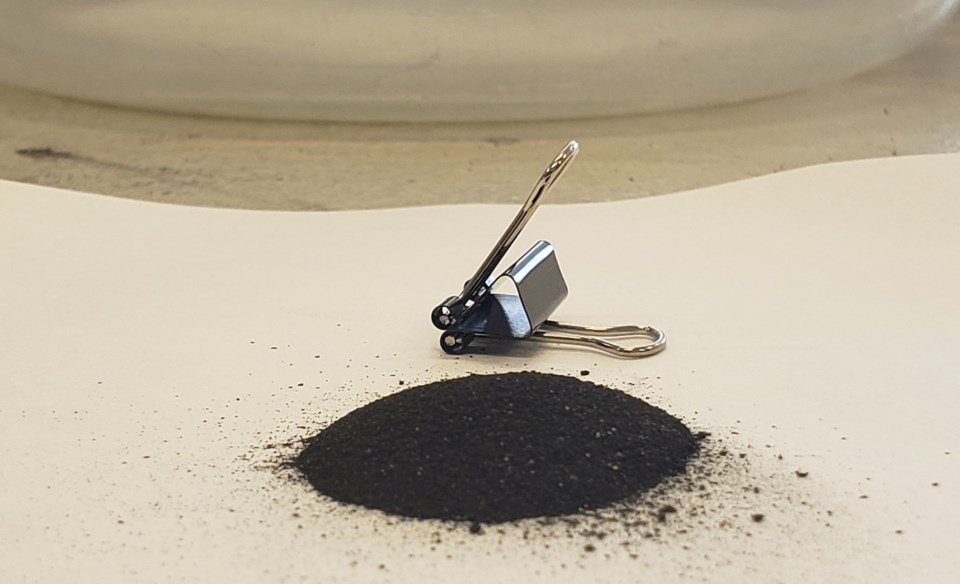Temiskaming refinery operator Electra Battery Materials is partnering with an Indigenous regional economic development group to establish a battery waste shredding plant in southern Ontario.
Electra signed a memorandum of understanding (MOU) this week with the Three Fires Group to form a joint venture focused around the recycling of lithium-ion battery waste.
The proposed plant would feed black mass material to Electra’s refinery in northeastern Ontario where the valuable minerals would be recovered and sold back into the market.
In a May 2 news release, Electra CEO Trent Mell expressed excitement in collaborating with Three Fires to tackle a persistent problem in the EV battery supply chain, “namely how to recycle and repurpose battery waste.”
The relationship with the Three Fires Group, he said, will give them access to a “steady stream of black mass material.”
At the refinery site situated between the town of Cobalt and Temiskaming Shores, Electra is building out a future battery materials industrial park by 2026, which could create 200 to 300 jobs.
One manufacturing phase of that park is already in operation.
Electra is currently running recycling trials there to produce various samples for potential customers. Electra doesn’t do the actual battery shredding but is forming a network of suppliers to feed them the crushed and powdery material known as black mass.
At Temiskaming, Electra is piloting its proprietary hydrometallurgical process that extracts valuable minerals such as lithium, nickel, copper, manganese and graphite inside the black mass.
In teaming up with Three Fires, they’ll search for a site somewhere in southern Ontario to establish a "net-zero industrial facility" that will shred batteries and separate out the minerals before shipping the material up to Temiskaming for refining.
They'll do all the economic studies on sourcing the engineering, procurement, construction and management required to launch such a facility.
Want to read more stories about business in the North? Subscribe to our newsletter.
Headquartered in Chippewas of Kettle and Stony Point First Nation, the Three Fires Group represents a number of First Nation whose traditional lands and treaty areas run from the Kitchener-Waterloo area to Windsor and into the U.S. Midwest.
They're also located in automotive alley in southwestern Ontario where billions are being spent by government and international automakers such as Volkswagen Group, LG-Stellantis, Toyota and GM CAMI to establish an electric vehicle supply chain.
In parallel, southwestern Ontario is seeing dozens of proposals for transmission grid connected battery energy storage systems.
Three Fires has a keen interest in investing in and advancing clean energy and infrastructure projects. The group holds 50 per cent ownership in five Hydro One transmission line projects under development in southwestern Ontario as well as holding investments in tourism, real estate and retail.
“Ontario is quickly emerging as an important centre in the global EV supply chain, potentially providing economic prosperity for generations to come,” said Reggie George, executive director of special projects and partnerships with the Three Fires Group.
“Critical to this success will be ensuring that all manufacturing activities related to the EV supply chain are carried out sustainably and responsibly. We believe First Nations should be leading the charge in ensuring a circular economy around the transition to EVs, and we’re proud to be taking the first steps together with Electra,” said George.
Mell added their joint venture with Three Fires “will pave the way for producers of various lithium-ion batteries and energy storage equipment in Ontario to reduce their waste, reuse high-value and increasingly scarce commodities like nickel and cobalt, and lower carbon emissions in their manufacturing activities.”
When it comes to the future of the lithium-ion battery recycling, research firm Markets and Markets estimates the global market will grow from a $6.5-billion industry to $35.1 billion by 2031.




